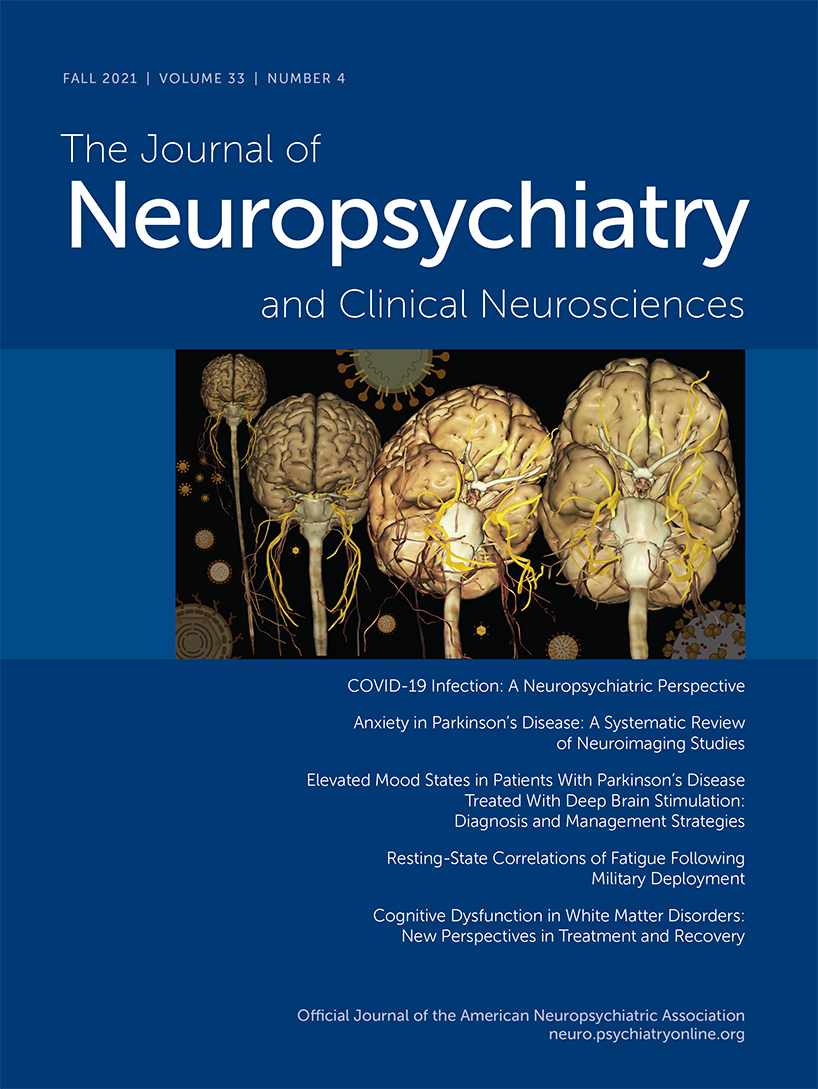Elevated Mood States in Patients With Parkinson’s Disease Treated With Deep Brain Stimulation: Diagnosis and Management Strategies
Abstract
Objective:
Deep brain stimulation (DBS) is an effective surgical treatment for patients with Parkinson’s disease (PD). DBS therapy, particularly with the subthalamic nucleus (STN) target, has been linked to rare psychiatric complications, including depression, impulsivity, irritability, and suicidality. Stimulation-induced elevated mood states can also occur. These episodes rarely meet DSM-5 criteria for mania or hypomania.
Methods:
The investigators conducted a chart review of 82 patients with PD treated with DBS.
Results:
Nine (11%) patients developed stimulation-induced elevated mood. Five illustrative cases are described (all males with STN DBS; mean age=62.2 years [SD=10.5], mean PD duration=8.6 years [SD=1.6]). Elevated mood states occurred during or shortly after programming changes, when more ventral contacts were used (typically in monopolar mode) and lasted minutes to months. Four patients experienced elevated mood at low amplitudes (1.0 V/1.0 mA); all had psychiatric risk factors (history of impulse-control disorder, dopamine dysregulation syndrome, substance use disorder, and/or bipolar diathesis) that likely contributed to mood destabilization.
Conclusions:
Preoperative DBS evaluations should include a thorough assessment of psychiatric risk factors. The term “stimulation-induced elevated mood states” is proposed to describe episodes of elevated, expansive, or irritable mood and psychomotor agitation that occur during or shortly after DBS programming changes and may be associated with increased goal-directed activity, impulsivity, grandiosity, pressured speech, flight of ideas, or decreased need for sleep and may persist beyond stimulation adjustments. This clinical phenomenon should be considered for inclusion in the bipolar disorder category in future DSM revisions, allowing for increased recognition and appropriate management.



